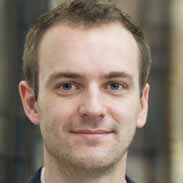SPEECH TEST#2 – Flashcards
Unlock all answers in this set
Unlock answersquestion
brainstorming
answer
a problem-solving technique that involves the spontaneous generation of ideas. Among other techniques, you can (blank) by making lists, using word association, and topic mapping.
question
word association
answer
brainstorming technique in which one writes down ideas as they come to mind, beginning with a single word
question
topic mapping
answer
a brainstorming technique in which words are laid out in diagram form to show categorical relationships among them; useful for selecting and narrowing a speech topic
question
general purpose
answer
the general speech purpose is to inform, to persuade, or to celebrate or commemorate a special occasion.
question
specific purpose
answer
an infinitive phrase-what you want the audience to know at the end of the speech
question
thesis statement
answer
the theme or central idea of a speech that connects all the parts of the speech in a single, declarative sentence. The main points, supporting material, and conclusion all relate to the thesis. What you will be discussing in your speech
question
supporting material
answer
examples, narratives, testimony, facts, and statistics that support the speech thesis and form the speech
question
example
answer
an illustration whose purpose is to aid understanding by making ideas, items, or events more concrete and by clarifying and amplifying meaning
question
brief example
answer
a single illustration of an idea, item, or event being described
question
extended example
answer
multifaceted illustration of the idea, item, or event being described, thereby getting the point across and reiterating it effectively
question
hypothetical example
answer
an illustration of something that could happen in the future if certain events were to occur
question
story, or narrative
answer
a tale based on personal experiences or imaginary incidents
question
anecdote
answer
a brief story of an interesting, humorous, or real-life incident that links back to the speaker's theme
question
testimony
answer
firsthand findings, eyewitness accounts, and opinions by people, both lay (nonexpert) and expert
question
expert testimony
answer
any findings, eyewitness accounts, or opinions by professionals who are trained to evaluate or report on a given topic
question
lay testimony
answer
firsthand findings, eyewitness accounts, or opinions from nonexperts facts documented occurrences, including actual events, dates, times, places, and people involved
question
statistics
answer
quantified evidence; data that measure the size or magnitude of something, demonstrate trends, or show relationships with the purpose of summarizing information, demonstrating proof, and making points memorable
question
cherry-picking
answer
selectively presenting only those facts and statistics that buttress one's point of view while ignoring competing data
question
primary research
answer
original or firsthand research, such as interviews and surveys
question
secondary research
answer
published facts and statistics, texts, documents, and any other information not originally collected and generated by the researcher
question
virtual library
answer
a collection of library holdings available online
question
propaganda
answer
information represented in such a way as to provoke a desired response
question
misinformation
answer
information that is false
question
disinformation
answer
the deliberate falsification of information
question
individual search engine
answer
a search engine that compiles its own database of Web pages, such as Google or AltaVista
question
meta-search engine
answer
a search engine that scans a variety of individual search engines at the same time
question
specialized search engine
answer
a search engine that searches for information only on specific topics
question
source reliability
answer
the level of trust in a source's credentials and track record for providing accurate information
question
source qualifier
answer
a brief description of the source's qualifications to address a topic
question
facts
answer
documented occurrences including actual events, dates, times, people, and places
question
statistics
answer
quantified evidence
question
What four pieces of information about the source should be passed on to the audience?
answer
The author or origin of the source The type of source The title or a description of the source The date of the source (recency)
question
What is the function of orally crediting speech sources?
answer
Crediting speech sources demonstrates that you have a range of research, helps you avoid plagiarism, and supports your credibility as an ethical speaker. It also enhances your ability to win support for your point of view, and enables your listeners to locate your sources if they decide to do further research on the topic.
question
4 objectives of a good introduction
answer
1. Gain attention 2. Reveal topic/Reinforce thesis 3. Establish credibility and goodwill 4. Preview main points
question
Attention Getting devices
answer
use a quotation, tell a story, ask rhetorical questions, arouse curiosity, startle your audience, relate unusual information, use humor, refer to the audience, refer to the occasion
question
Functions of a conclusion
answer
1. Signal the end of the speech 2. Summarize main points 3. Reiterate topic and purpose and 4. (in persuasion-Challenge the audience to respond) and 5. A memorable closing.



